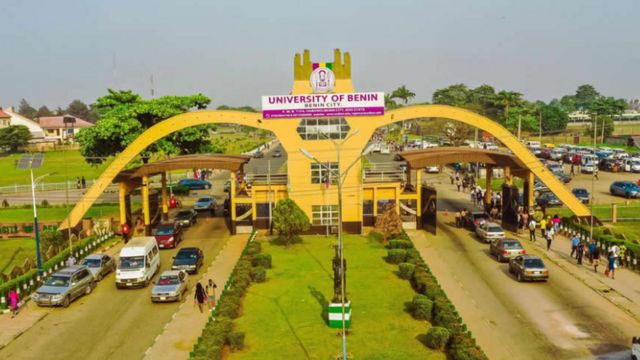This list contains the top 10 schools with the slowest calendar as of September 2023. These universities have an academic calendar that is longer than the average of other universities in Nigeria. This means that students at these universities spend more time in school and have fewer breaks throughout the year.
There are a few reasons why these universities may have slower academic calendars. Here are five different factors that can cause a slow academic calendar at a Nigerian university:
- Strikes: Frequent strikes by staff unions, such as the Academic Staff Union of Universities (ASUU), can disrupt the academic calendar.
- Administrative Issues: Problems in university administration, including delayed processes like admission, registration, and examination scheduling, can lead to calendar delays.
- Security Concerns: Universities located in regions with security challenges, like the northeastern part of Nigeria, may experience calendar disruptions due to insecurity.
- Funding Shortages: There needs to be more funding from the government or other sources to ensure the university’s ability to maintain a regular academic calendar.
- Protests and Unrest: Student protests, staff protests, or other forms of unrest on campus can result in the suspension of academic activities, causing calendar delays.
10. Nnamdi Azikiwe University


UNIZIK is a federal university established in 1991, located in Awka, Anambra State, Nigeria. Nnamdi Azikiwe University (UNIZIK) has encountered significant hurdles in maintaining a consistent academic calendar. One prominent factor contributing to its slow calendar progress has been recurring strikes and protests. These disruptions, often initiated by staff or student unions, can lead to extended breaks and delays in academic activities. As a result, students at UNIZIK have sometimes had to navigate a less predictable academic schedule, impacting their educational journey and the university’s overall efficiency. These challenges highlight the need for continuous efforts to address and resolve the underlying issues to ensure a smoother and more stable academic calendar for UNIZIK.
9. The University of Benin


The University of Benin (UNIBEN), a federal university located in Benin City, Edo State, Nigeria, has encountered numerous academic calendar disruptions over the years. One contributing factor to these interruptions has been labor strikes by staff unions. Established in 1970, UNIBEN has grown to become one of Nigeria’s most prominent institutions of higher learning. Despite its achievements, periodic disruptions have challenged the consistent flow of its academic activities, affecting students’ educational experiences. The university continues to work towards resolving these issues to ensure a more stable and predictable academic calendar for its students and faculty.
8. Ahmadu Bello University


Ahmadu Bello University (ABU), located in Zaria, Kaduna State, Nigeria, was established in 1962. This federal university, like numerous others in Nigeria, has faced challenges with its academic calendar. One significant factor contributing to its slow calendar has been labor disputes among staff and unions. These disputes, along with other factors, have at times disrupted the smooth flow of academic activities at ABU, affecting students and faculty alike. Despite these challenges, ABU remains a prominent institution for higher education and research in Nigeria.
7. Abia State University


Abia State University (ABSU), a state-owned institution located in Uturu, Abia State, Nigeria, was established on December 1, 1981. Despite its commitment to providing quality education, ABSU has faced disruptions in its academic calendar, primarily due to periodic strikes by staff unions. These disruptions have, at times, resulted in delays in the commencement and completion of academic sessions, affecting the student’s learning experience. ABSU continues to work towards resolving these issues to ensure a more stable and consistent academic calendar for its students and faculty.
6. Delta State University


Delta State University (DELSU), a state-owned institution located in Abraka, Delta State, Nigeria, has faced academic calendar disruptions, primarily due to industrial actions by staff unions. Established on April 30, 1992, as a state university, DELSU has strived to maintain a stable academic calendar but has encountered challenges along the way. These disruptions have sometimes resulted in delays in the commencement and completion of academic sessions, affecting students and faculty alike. Despite these challenges, DELSU continues to provide quality education in various fields of study.
5. Ladoke Akintola University of Technology


Ladoke Akintola University of Technology (LAUTECH), a state-owned institution established on April 23, 1990, is located in Ogbomosho, Oyo State, Nigeria. LAUTECH has faced academic calendar disruptions, mainly due to a prolonged conflict between Oyo and Osun States over ownership. This dispute over administrative control and funding allocation has significantly impacted the university’s ability to maintain a consistent academic calendar, affecting students and faculty alike. Despite these challenges, LAUTECH continues to strive for academic excellence in the face of adversity.
4. The University of Ibadan (UI)


The University of Ibadan (UI), a prestigious institution located in Ibadan, Oyo State, Nigeria, has confronted academic calendar challenges primarily due to labor strikes and other issues. Established in 1948, UI is a federal university renowned for its academic excellence and research contributions. These disruptions, such as staff strikes and administrative challenges, have occasionally led to delays in the university’s academic schedule. Despite these issues, UI remains committed to providing quality education and advancing knowledge in various fields.
3. Obafemi Awolowo University


Obafemi Awolowo University (OAU) is a federal university established in 1962, located in Ile-Ife, Osun State, Nigeria. Obafemi Awolowo University (OAU) is known for its slow academic year, mainly because of frequent disruptions caused by staff strikes and industrial actions. These interruptions have historically affected the university’s ability to maintain a consistent and timely academic calendar. OAU students often face extended periods of uncertainty and delays in completing their courses, making it challenging for them to graduate on schedule. This recurring issue has earned OAU a reputation for having one of the slowest academic calendars among Nigerian universities, posing challenges for both students and the institution itself.
2. The University of Maiduguri

The University of Maiduguri (UNIMAID), located in Maiduguri, Borno State, Nigeria, was established in 1975. The security issues that are common in northeastern Nigeria have occasionally had an impact on its academic calendar. This federal university has faced interruptions due to security concerns, including attacks and disruptions caused by the insurgency in the area. Despite these challenges, UNIMAID continues to strive for academic excellence while operating in a complex and often difficult environment.
1. Abubakar Tafawa Balewa University (ATBU)


Abubakar Tafawa Balewa University (ATBU), established in 1980, is a federal university located in Bauchi, Nigeria. It has faced challenges in maintaining a consistent academic calendar due to factors like state unrest in the region. Bauchi State, where ATBU is situated, has experienced periodic episodes of insecurity and unrest, which have, at times, disrupted the university’s operations and academic schedules. These issues, along with other factors, have occasionally contributed to a slower academic calendar at ATBU.
If you are considering attending one of these universities, it is important to factor in the slower academic calendar. This may mean that you will have to spend more time in school and have fewer opportunities to take breaks. However, these universities may offer a more affordable education and a more relaxed atmosphere. Ultimately, the decision of whether or not to attend one of these universities is a personal one.




Leave a Comment